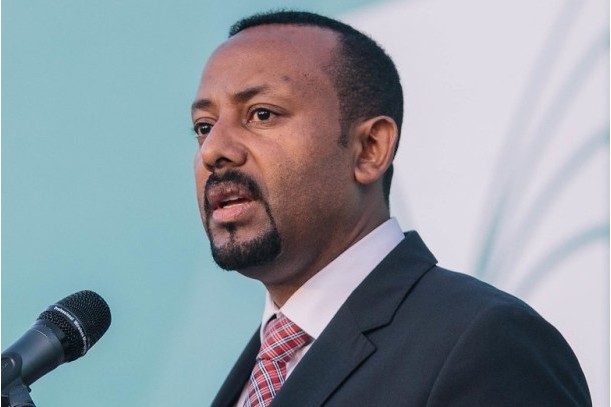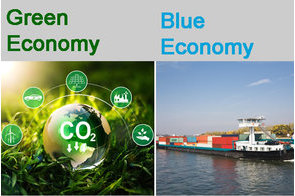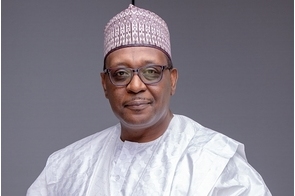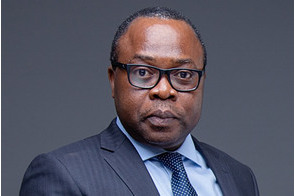Latest News
Ethiopia's Abiy Ahmed wins 2019 Nobel Peace Prize

News Highlight
The Ethiopian PM has won plaudits for his role in ending the 20-year war between Ethiopia and Eritrea. He also played a role in brokering a power-sharing deal in neighbouring Sudan.
Ethiopia’s Prime Minister, Abiy Ahmed, has emerged as the winner of this year’s Nobel Peace Prize, which was awarded today by the Nobel Committee. The Ethiopian PM has won plaudits for his role in ending the 20-year war between Ethiopia and Eritrea. He also played a role in brokering a power-sharing deal in neighbouring Sudan.
Berit Reiss-Andersen, Chair of the Norwegian Nobel Committee, made the announcement on Friday, stating that the Nobel Peace Prize was given to Ahmed "for his efforts to achieve peace and international cooperation, and in particular for his decisive initiative to resolve the border conflict with neighbouring Eritrea."
The Nobel Peace Prize, first awarded in 1901, honours “the person who shall have done the most or the best work for fraternity between the nations and the abolition or reduction of standing armies and the formation and spreading of peace congresses.” Ahmed defeated Greta Thunberg, the 16-year-old Swedish climate change activist, and New Zealand's Prime Minister Jacinda Ardern.
Awol Allo, an Ethiopian associate professor of law at Keele University in Britain, told CNN that Ahmed deserves the prize for his role in ending the 20-year conflict and bringing peace and stability in the Horn of Africa. Ahmed, who took office in April last year at the age of 41, is credited with pursuing a reformist agenda that has included releasing political prisoners and granting amnesty to people who had fled the country for criticising the previous regimes.
"I think what Abiy did with the Eritrea issue was very courageous and remarkable. I think a lot of people have considered that what he has done is worthy of such a recognition,” Allo said. "The two countries are no longer in the state of war. Families have been reunited because flights are now running between the two countries. Relations that have been severed for 20 years have been rekindled."
While responding to the announcement of the prize to Ahmed, Amnesty International released a statement urging the PM to embark on further human rights reform.
“Since assuming office in April 2018, it has reformed the security forces, replaced the severely restricting charities and society law, and agreed a peace deal with neighbouring Eritrea to end two decades of hostile relations," said Amnesty International’s Secretary General, Kumi Naidoo. “However, Prime Minister Abiy Ahmed’s work is far from done. This award should push and motivate him to tackle the outstanding human rights challenges that threaten to reverse the gains made so far."
The human rights organisation also urged him to ensure his government addresses the ongoing ethnic tensions that threaten instability and further human rights abuses. Amnesty said the government should hold suspected perpetrators of past human rights violations to account.
At the press conference in Oslo, Reiss-Andersen also alluded to the challenges that remain for Ahmed to address, saying “many challenges remain unresolved. Some people will think this year's prize is being awarded too early."
Previous winners of the Nobel Peace Prize from the African continent include Democratic Republic of Congo’s Denis Mukwege, Kenya’s Wangari Maathai, South Africa’s first black president Nelson Mandela, Liberia's Ellen Johnson Sirleaf, and Ghana's Kofi Annan.
Related News
Latest Blogs
- AML/CFT regulations and data protection require balance in regulating cryptocurrency
- It's time for honest discussions on Nigeria's security architecture
- Driving economic growth through green transition in Nigeria
- CBN is fighting inflation instead of stagflation
- Why electricity privatization failed (2)
Most Popular News
- IFC, partners back Indorama in Nigeria with $1.25 billion for fertiliser export
- CBN increases capital requirements of banks, gives 24 months for compliance
- CBN settles backlog of foreign exchange obligations
- Univercells signs MoU with FG on biopharmaceutical development in Nigeria
- Ali Pate to deliver keynote speech at NDFF 2024 Conference
- NDFF 2024 Conference to boost Nigeria’s blue and green economies






